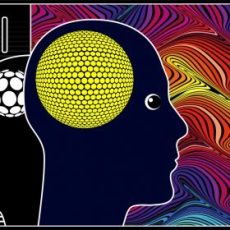Properly speaking, there is no centre of emotions in the brain. Emotions are complexed phenomena that are functions of the interaction of several regions of the brain. There is therefore no point in looking for a “centre” of Happiness or of unhappiness. Nonetheless work carried out int he past twenty years, principally by Richard Davidson and his colleagues, has found that when people report feeling Joy, altruism, interest, or enthusiasm, and when they manifest high energy and vivacity of spirit, they present significant cerebral activity in the left pre frontal cortex. On the other hand, those who predominantly experience such negative emotional states as depression, pessimism, or anxiety and have a tendency to become withdrawn manifest more actively in the right prefrontal cortex. Happyho also provides best Meditation classes in Noida and Delhi NCR India area
More over, when we compare the activity levels of the left and right prefrontal cortexes of subjects at rest – that is, in a neutral state of mind – we find that the relation between them varies considerably from one person to the next and quit faithfully reflects their temperament. People who are customarily more active on the left side than on the right mostly feel pleasant emotions. Conversely, those who right pre frontal cortex is more active feel negative emotions more often. Subjects whose left prefrontal cortex is damaged ( in an accident or by disease) are specially vulnerable to depression, mostly likely because the right side is no longer counter balanced by the left.
These characteristics are relatively stable and manifest from early childhood. One study of nearly 400 two and a half year olds found that those who, upon entering a room with other children, toys, and adults, clung anxiously to their mothers and spoke only reluctantly to strangers presented actively predominantly on the right. However, those who felt secured and went straight of to play and spoke freely and fearlessly had higher activity on the left. The brain clearly bears the signatures of extroversion and introversion, the imprint happy or unhappy disposition.




